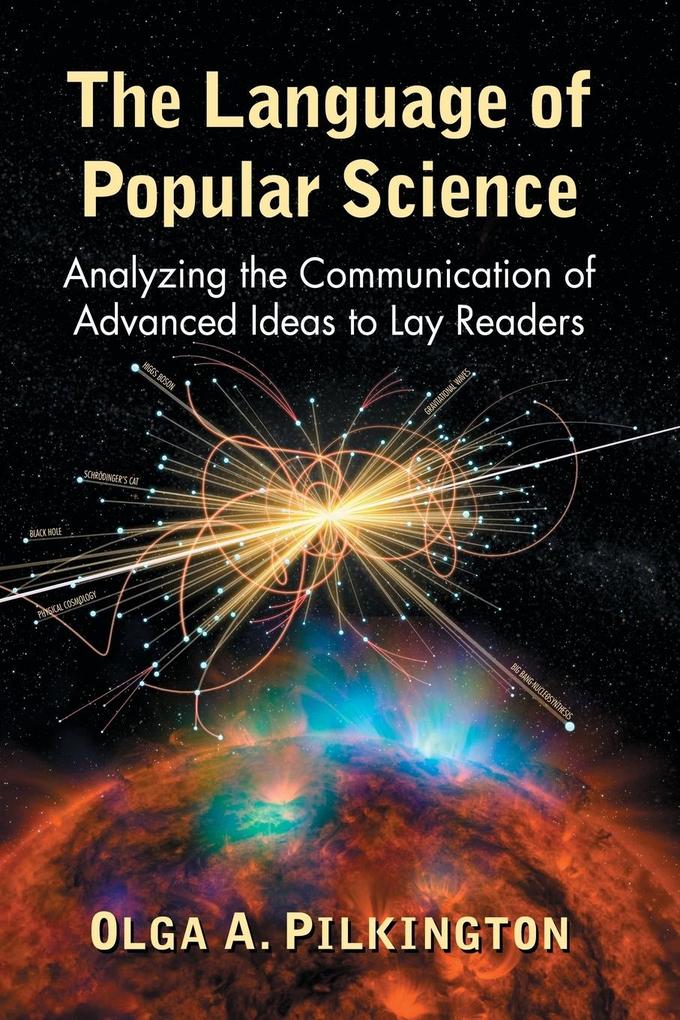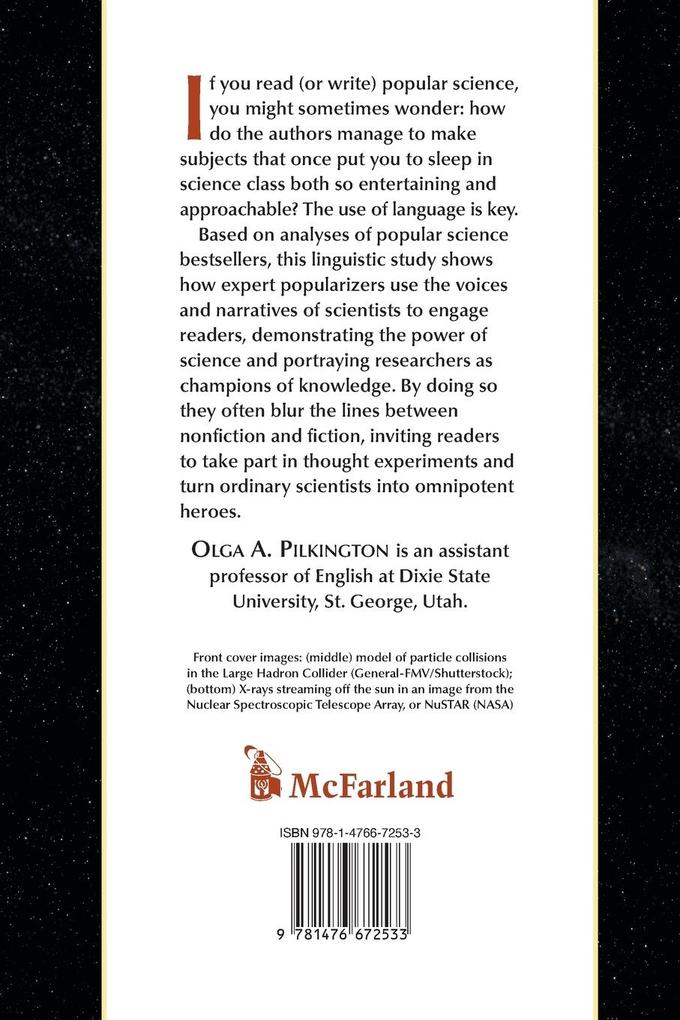
Zustellung: Do, 24.07. - Mo, 28.07.
Versand in 5 Tagen
VersandkostenfreiBestellen & in Filiale abholen:
If you read (or write) popular science, you might sometimes wonder: how do the authors manage to make subjects that once put you to sleep in science class both so entertaining and approachable? The use of language is key.
Based on analyses of popular science bestsellers, this linguistic study shows how expert popularizers use the voices and narratives of scientists to engage readers, demonstrating the power of science and portraying researchers as champions of knowledge. By doing so they often blur the lines between nonfiction and fiction, inviting readers to take part in thought experiments and turn ordinary scientists into omnipotent heroes.
Based on analyses of popular science bestsellers, this linguistic study shows how expert popularizers use the voices and narratives of scientists to engage readers, demonstrating the power of science and portraying researchers as champions of knowledge. By doing so they often blur the lines between nonfiction and fiction, inviting readers to take part in thought experiments and turn ordinary scientists into omnipotent heroes.
Inhaltsverzeichnis
Table of Contents
Acknowledgments
Preface
Introduction: Popular Science
1. A Linguist Looks at Popular Science
2. Personal Narratives
3. Narratives of Discovery: Explanation Made Easy
4. Narratives and Ideology: What's in a Structure?
5. What They Say: Speech of Scientists
6. What They Imagine Is Possible: Thoughts of Scientists
7. Literature and Limericks: Writing in Popular Science
8. Definitions: Types and Methods
9. Interacting with Readers through Definition
10. The Fictionalized Reader
11. Lab Lit: Fictional Science
Conclusion: Professional Science and Popular Science
Epilogue
Sources
Index
Acknowledgments
Preface
Introduction: Popular Science
1. A Linguist Looks at Popular Science
2. Personal Narratives
3. Narratives of Discovery: Explanation Made Easy
4. Narratives and Ideology: What's in a Structure?
5. What They Say: Speech of Scientists
6. What They Imagine Is Possible: Thoughts of Scientists
7. Literature and Limericks: Writing in Popular Science
8. Definitions: Types and Methods
9. Interacting with Readers through Definition
10. The Fictionalized Reader
11. Lab Lit: Fictional Science
Conclusion: Professional Science and Popular Science
Epilogue
Sources
Index
Produktdetails
Erscheinungsdatum
26. Dezember 2018
Sprache
englisch
Seitenanzahl
198
Autor/Autorin
Olga A. Pilkington
Verlag/Hersteller
Produktart
kartoniert
Gewicht
295 g
Größe (L/B/H)
229/152/11 mm
ISBN
9781476672533
Entdecken Sie mehr
Bewertungen
0 Bewertungen
Es wurden noch keine Bewertungen abgegeben. Schreiben Sie die erste Bewertung zu "The Language of Popular Science" und helfen Sie damit anderen bei der Kaufentscheidung.










